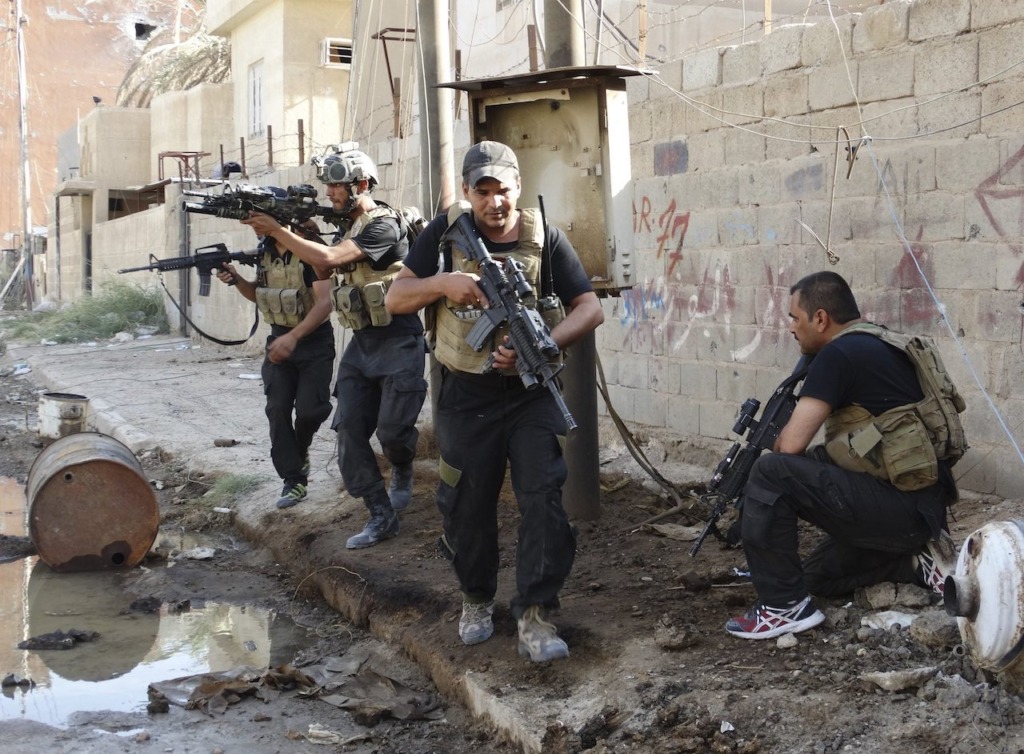DOHUK, Iraq (OSV News) – Twenty years after the U.S.-led invasion of Iraq started and six years after Iraq declared victory over the Islamic State (IS), whose attacks started in 2014, the country’s religious minorities are still trying to surmount challenges.
According to the U.N. International Office for Migration (IOM), more than 200,000 Yazidis who survived the Islamic State’s brutality are still displaced, living in and outside camps across Iraq’s autonomous Kurdish region. The Islamic State abducted thousands of women and girls as sex slaves and massacred thousands of men.
Christians in the Kurdistan region say that while they appreciate its relative stability and security, they feel apprehensive about the future because of the recent history of violence in Iraq that forced them to pull up roots.
“My family once lived in the capital, Baghdad, but with the church bombings and sectarian attacks on Christians and other minorities after the 2003 war, we had to move up north to Dohuk,” an Iraqi Armenian man named Arsen told OSV News.
This Kurdish region also hosts Assyrians and other Christians, some of whom escaped IS, which attacked Mosul and the Nineveh Plains towns. In addition, camps for internally displaced Yazidis, who were targeted by IS militants for death, sexual slavery and forced labor, dot the area.
It is said that such camps are to be closed by the year’s end, but many wonder where this will leave the Yazidis, who feel that their own government betrayed them by failing to protect them from Islamic State atrocities.
“How can camps be closed when thousands of families have been living there for a long time? It’s like taking them to the streets. There needs to be a viable alternative,” Father Emanuel Youkhana, a priest of the Assyrian Church of the East, told OSV News.

The Yazidis with whom OSV News spoke added that they cannot return to Sinjar, their ancestral land where many of them lived at the time of the IS attacks because their homes and businesses were destroyed.
“There is no security, or livelihood possibilities there. Instead, there are a variety of military forces in Sinjar: whether it’s the Kurdish PYD (Democratic Union Party), Yazidi unit fighters, the Iran-backed Shiite Hashd al-Shaabi militia, Iraqi army. There are also Turkish airstrikes and an open border to Syria. I share their fear with them for Sinjar,” Father Youkhana said.
In March, the government of Iraqi Prime Minister Mohamed Shia al-Sudani allocated $38.5 million to rebuild Sinjar and villages in the Nineveh Plains.
Father Youkhana runs the Christian Aid Program Northern Iraq (CAPNI) for displaced Iraqis around the city of Dohuk. This Catholic organization also rebuilds homes and helps to restore livelihoods in several towns in the Nineveh Plains following its destruction.
“We are motivated by our Christian values because we are a Christian faith-based organization and the basis of our work is love. In the case of Iraq, to share love means that you have to take care of people in need. And so, we address the needs of these vulnerable communities,” he said.
CAPNI aids the displaced in more than 25 remote villages in the Duhok area by providing basic health checks and treating chronic diseases. It is also helping to repair damaged homes.
Over the past five years, CAPNI also has rehabilitated more than 1,450 houses, 32 schools, nine churches, and 200 shops in the Nineveh Plains towns. Now, it is focused in the next three years on encouraging sustainable development by providing livelihood opportunities to unemployed youth and vocational training for others.
“We are trying to help people have a stable and sustainable income,” Father Youkhana said. The projects require funding of $3.3 million annually, but one challenge is funds as the war in Ukraine persists.
Microloans are available for those with business skills and a business plan either in agriculture, or in towns where there is a need for mobile phone maintenance, air-conditioning installation, car mechanics, to name a few enterprises. Grants also are available to female-headed households to start businesses often at home.
Father Youkhana pointed to a project where Yazidis are working in eight greenhouses provided by CAPNI where a variety of vegetables can be produced even out of season, including, for the first time, broccoli. “They are able to receive a better income as a result of the project,” he said.
CAPNI also is engaged in peace-building and advocacy work for minorities in Iraq. “What happened from the Islamic State invasion cannot be forgotten. It should be addressed openly to learn from it, to avoid it ever happening,” Father Youkhana said of the Dutch government funded project aiding those on the Nineveh Plains.
Iraqi Chaldean Catholic Church leaders, such as Cardinal Louis Sako, patriarch of Chaldean Catholics, and Archbishop Bashar Warda of Irbil have repeatedly urged authorities to protect and respect all of the Iraqi citizens.
On the recent Iraqi National Day for Tolerance March 6, adopted by the government to commemorate the historic visit of Pope Francis in 2021 to the country, Father Youkhana made high-level presentations, including to the Iraqi President Abdul Latif Rashid, where he warned of the worrying trend of Iraq’s religious and ethnic minorities leaving the country.
“Once Iraq loses its minorities, the majority is no more the majority,” Father Youkhana said. “We will continue to advocate for as long as it takes.”
Revising Iraq’s schools curricula to remove prejudice and encourage respect for all of Iraq’s rich ethnic and religious minorities, too, is part of CAPNI’s work.

